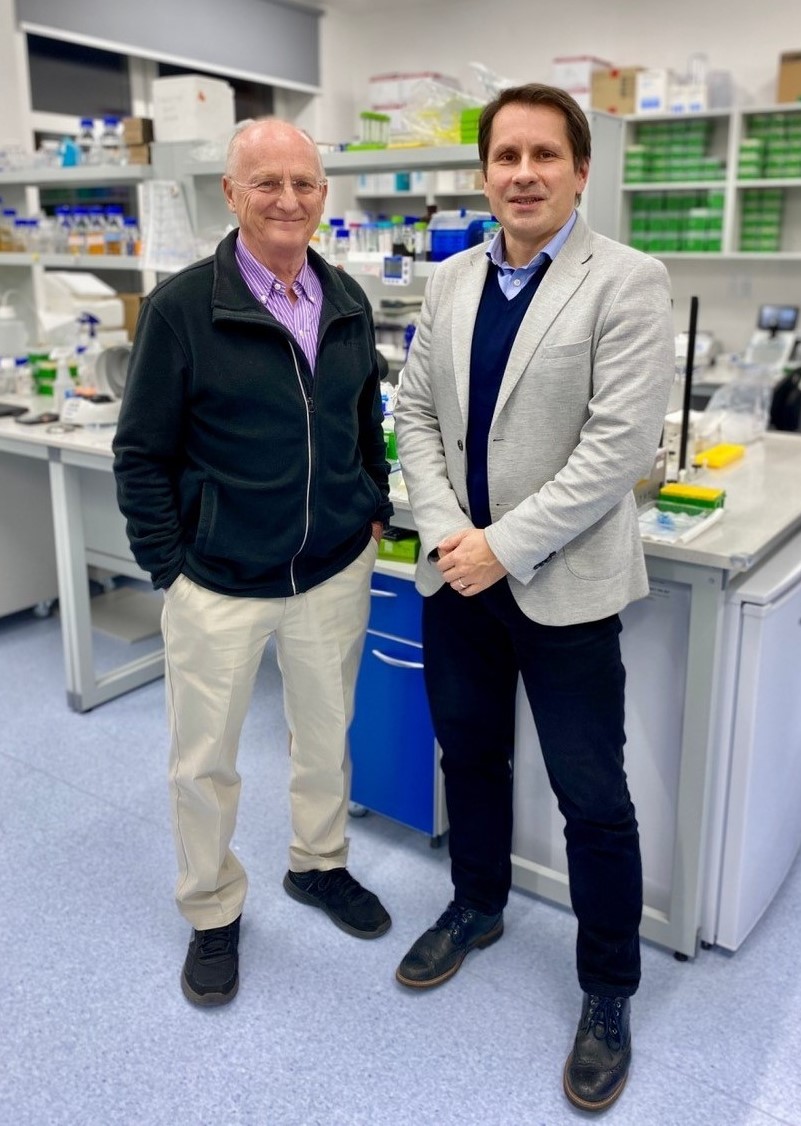IIMCB expands research on Parkinson's disease
 Prof. Jacek Kuźnicki and Prof. Gracjan Michlewski
Prof. Jacek Kuźnicki and Prof. Gracjan Michlewski
Scientists at the International Institute of Molecular and Cell Biology in Warsaw (IIMCB) are to conduct advanced research on Parkinson's disease. Prof. Gracjan Michlewski and Prof. Jacek Kuźnicki have received OPUS grants from the National Science Centre for this purpose.
Parkinson’s disease is an incurable neurodegenerative disorder. It causes tremors in the limbs, muscle stiffness, and slowed movements, among others. The World Health Organization reports that the number of people with this disease has doubled in the past 25 years. According to 2019 estimates, Parkinson’s disease affects 1 out of 1,000 people, and 1 out of 100 among the population over 60.
– The primary cause of Parkinson’s disease is the loss of neurons in the brain, particularly dopaminergic neurons, which are responsible for the production of the neurotransmitter – dopamine. This is associated with the accumulation of alpha-synuclein proteins – says Prof. Michlewski of the IIMCB.
Michlewski’s group will conduct the research on human dopaminergic cells and on a model of Parkinson’s disease in the nematode C.elegans. He hopes that the results of this study will enhance our understanding of the regulatory networks associated with the disease and help develop innovative therapies focused on controlling the alpha-synuclein expression.
The mechanisms of Parkinson’s disease are also studied by Prof. Jacek Kuźnicki of the IIMCB. – Some of the patients have mutations of genes that encode PINK1 and LRRK2 proteins. Our team’s research showed that despite the PINK1 mutation, the loss of dopaminergic neurons can be inhibited. It occurs when we deactivate the function of the mitochondrial calcium uniporter, which allows calcium ions to flow into mitochondria – says Prof. Kuźnicki.
The research will be based on cells from patients and on a model of Parkinson’s disease in the zebrafish. Prof. Kuźnicki aims to identify genes whose change in activity occurs when the loss of dopaminergic neurons is inhibited. – These genes and proteins encoded by them may have diagnostic value before the appearance of Parkinson’s disease symptoms, thereby providing a basis for new therapies – Prof. explains.
Prof. Michlewski’s project "Biological control and pharmacological regulation of RNAs implicated in the etiology of Parkinson's disease" and Prof. Kuźnicki’s project “How inactivation of mitochondrial calcium uniporter protects dopaminergic neurons” are financed by grants from the National Science Centre – OPUS 25. The budget of each is up to 3 million PLN. Prof. Michlewski’s project was awarded first place on the ranking list of the NZ1 panel: Molecular biology, structural biology, biotechnology. Prof. Kuźnicki’s project was ranked third on the NZ4 panel: Biology of tissues, organs, and organisms.
The numerical success rate of the OPUS 25 competition, which is the number of projects that received funding, was around 8%.

